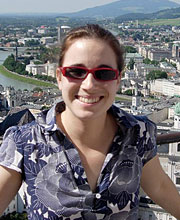
Associate Professor of Anthropology
Keepers of the National Faith: Medical Responsibility and Morality on the French Mediterranean
“Keepers” is a work of medical humanities that asks how state-paid medical practitioners from a southern French town I call Montagnac made decisions about patient care in the late 2010s. Focusing on clinicians in fields driven by patient requests, namely assisted reproduction and palliative care, I attend to moments when care givers found those requests to be ethically divisive. I suggest that in these moments, medical practitioners were arguing with each other and their patients about the nature of human personhood. Despite working in the secular context of public hospitals, many assumed a version of personhood that shared elective affinities with John Paul II’s Christian anthropology. This anthropology—rooted in a putatively given human nature and natural order—led many care givers to reject what they thought of as transactional approaches to medicine, which figure patients as classic bioethics subjects who can and should make autonomous decisions about their bodies and trajectories. Instead, care givers embraced “relational” care, which insisted on entangled, asymmetrical and reciprocal relations between physicians and patients, and the foundational importance of transcendent “interdictions.” Furthermore, many claimed that this very particular approach to patients and their care was “French.” I attend to when, where, and why even the most self-consciously relational forms of “French” care could be quite uncaring. In the process, Keepers highlights the investment of educated professionals in a fiction of shared national morality, the surprising ways that Catholicism quietly haunts that morality, and the limits on how radically “relational” relational care is or can be in medical settings.